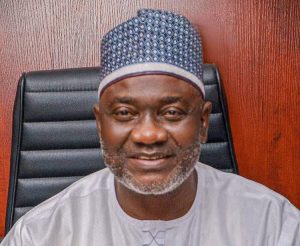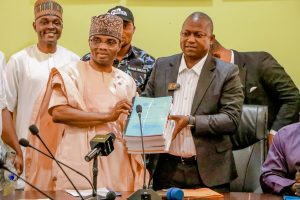Ramadan amid Coronavirus Pandemic

Nothing is currently normal. Nothing is the way it ought to be. The globe is taking another look at itself in order to understand whether the population living on it should continue life the way they were used to or take a break and reflect. That is usually what Ramadan is for, especially for the Muslims that know their faith, but the pandemic is urging those with discerning mind to do just that – take a break from our everyday activities, reassess and then determine whether to continue as it were prior to the outbreak of the virus.
I have said it several times that whether in politics, religion, education, science, technology, art, socialisation, commerce and all other areas of human connectivity, the dynamics would change dramatically after the outbreak. Ramadan is a part of the Islamic faith and constitutes one of the most importantant parts of Muslim faith as they are expected to go on a month long fast from dawn to dusk. It is one of the pilars of Islam.
The Holy Qur’an in Chapter 2 makes clear the spiritual undertone of the fast by saying it is meant to test the believers’ patience just like the fate that befell those before now for them to understand what it means to persevere.
The verse says: “O you who believe, fasting has been prescribed for you as it has been prescribed to those before you in order that you may attain taqwa. ‘Taqwa’ as used here technically refers to a ‘shield’ and means you are of pure heart and mind and guarded from evil; so says a further interpretation of that quote.
In fact, the same chapter two went on to say the month of Ramadan is that in which was revealed the Quran; a guidance for mankind, and clear proofs of the guidance, and the criterion (of right and wrong). “And whosoever of you is present, let him fast the month, and whosoever of you is sick or on a journey, a number of other days. Allah desires for you ease; He desires not hardship for you; and that you should complete the period, and that you should magnify Allah for having guided you, and that perhaps you may be thankful.” This is a clear indication of Allah’s intention for prescribing fasting to the Muslims in the first place. It is not to punish but to teach important virtues that make the human being more humane and have empathy for one another.
But observing the all important spiritual exercise in a time of pandemic as we are doing now with Coronavirus ravaging the globe, gives the period more significance than it initially carried. Before now, it had been authentically reported that Prophet Muhammad once told his followers never to enter or leave a town that has a plague, to avoid spreading it. That then brings us to the period the entire world is currently under.
This now means there would be no communal ‘iftars’, that is the fast-breaking meals. This has been the tradition in many streets, towns and locations which help reach those who may not have enough or even nothing to feed during the evening meal taking.
Usually during Ramadan, Muslims feast on delicious spread of food every night, at someone’s home or at a mosque. This gathering is especially important for people without close families and those without much income. Improvisation is what may work this year. That is what is being done in many parts of the world, including Saudi Arabia, the birthplace of Islam.
Knowing that acts of piety are usually rewarded in multiple folds during the month of Ramadan, Muslims usually increase their acts of charity, alms giving and general exemplary conducts. The world needs it now more than ever before, social distancing, isolation or quarantine notwithstanding. The entire world has set its eyes on Africa where the manifestation of the virus delayed in getting to. This is because the economy of the continent is already convulsive to its population growth, leading to socio economic challenges including prevalence of unemployment, poverty, dearth of social infrastructure, avoidable deaths, among others.
But for the social responsibilities shown by individuals of means some of who are mid-level and merely getting by, the impact would have been overwhelming. The place of faith and believers in this moment of Ramadan cannot be downplayed in assisting some of the less-privileged Muslims to make ends meet during this pandemic-laced fasting period.
Apart from the ways the fasting period would affect Muslims, other very core religious obligations expected of the Islamic faithful would be affected, save for Nigerians who are very fanatical about their religions. Where the rule of law is in operations with strict adherence; especially in the west, including the United Kingdom, the United States, the Middle-East-the cradle of both Islam and Christianity, places of worship have remained closed and Muslims are expected to pray in their homes with their families, rather than going to the Mosque, which is supposed to be the tradition.
Congregational prayers are banned in several countries, and many mosques have been temporarily closed. Jordan has suspended the special evening Tarawih prayers at mosques, urging citizens to offer them at home.
In Iran, one of the region’s hardest-hit nations, Supreme Leader Ayatollah Ali Khamenei has also called on people to avoid collective prayers.
In the Malaysian state of Selangor, the sultan has suspended religious activities in mosques until at least May 31.
“The religious authorities are definitely encouraging people to do their daily five prayers at home, and I think it really is within the family then to inculcate that spirit of coming together and praying (as a group),” Rozana said.
In Saudi Arabia, King Salman has ordered the shortening of Tarawih prayers, which will be held without public attendance, at the two holy mosques in Mecca and Medina.
Meanwhile, Pakistan will allow congregational prayers at mosques during Ramadan, but worshippers must keep a distance of two metres (six feet) from each other and are encouraged to bring their own prayer mats.
At Jerusalem’s Al-Aqsa Mosque compound, which will be closed to Muslim worshippers throughout Ramadan, the call to prayer will still take place five times a day, and religious workers allowed entry.
Mosques in the United Kingdom and elsewhere will live-stream sermons, Quranic recitation and prayers. Muslims will also be able to attend religious lectures via video-conferencing app Zoom, Facebook and YouTube.
“For us, the connectivity- whether it was through classes, the recitation of the Quran or through prayers at mosques – we will now try to cope with in our homes,” said Aiasha Amir, a Pakistani Islamic instructor and motivational speaker, who will be giving daily lectures live on Facebook during Ramadan. This is indicative therefore that technology is playing a critical role, as it has always done in the religious activities of the people and is making up for lost grounds for the Islamic faithful.
Many mosques in parts of Nigeria, including some in Lagos, Oyo, Ogun, Kano, Kaduna and others have also closed down from the Annual Ramadan Lectures because of the pandemic; the same thing with the National Mosque in Abuja, Nigeria’s capital. But whether those scholars in charge of sermons have the knowhow to also utilize the power of technology is a different discussion entirely.
However in the midst of all these, for those that have already contracted the virus, there is a respite. According to the Qur’an, sick people are exempted from fasting and can make up for the missed fast within a year after Ramadan. The elderly, pregnant and nursing women are also allowed to skip fasting.
Therefore, according to some medical professionals, if one is experiencing serious coronavirus symptoms, it is advisable to not fast.
In Islam, it is very clear about who should fast and who is exempted from fasting, particularly those who are experiencing a particular ailment and I think with the coronavirus symptoms it doesn’t sound like it is an ailment that is light.”
This year’s Ramadan in these trying times should be usey by all Muslims to draw closer to Allah and seek the face of God. It should also be used as a time to pray for our nation and the world at large. More than ever, Muslims are being called to stand in the gap and learn to imbibe the lessons of Ramadan for a better and greater tomorrow post Covid19.








